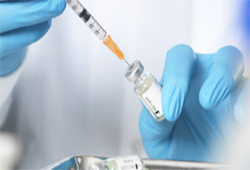 On March 29, Samsung Bioepis announced the launch of its adalimumab biosimilar HadlimaTM, referencing AbbVie’s HumiraTM, in Australia in partnership with Merck & Co. HadlimaTM is approved for the treatment of rheumatoid arthritis, juvenile idiopathic arthritis, psoriatic arthritis, ankylosing spondylitis, adult and paediatric Crohn’s disease, ulcerative colitis, hidradenitis suppurativa and plaque psoriasis. In addition, on March 15, Samsung Bioepis launched its adalimumab biosimilar in Korea under the name AdalloceTM in partnership with Yuhan Corp. Samsung Bioepis’s adalimumab biosimilar was first launched in Europe in October 2018 under the name ImraldiTM in partnership with Biogen, and is also marketed in Canada as HadlimaTM in partnership with Merck & Co.
On March 29, Samsung Bioepis announced the launch of its adalimumab biosimilar HadlimaTM, referencing AbbVie’s HumiraTM, in Australia in partnership with Merck & Co. HadlimaTM is approved for the treatment of rheumatoid arthritis, juvenile idiopathic arthritis, psoriatic arthritis, ankylosing spondylitis, adult and paediatric Crohn’s disease, ulcerative colitis, hidradenitis suppurativa and plaque psoriasis. In addition, on March 15, Samsung Bioepis launched its adalimumab biosimilar in Korea under the name AdalloceTM in partnership with Yuhan Corp. Samsung Bioepis’s adalimumab biosimilar was first launched in Europe in October 2018 under the name ImraldiTM in partnership with Biogen, and is also marketed in Canada as HadlimaTM in partnership with Merck & Co.
On March 23, LG Chem announced that it obtained approval from Japan’s Health Ministry for 20 mg, 40 mg, and 80 mg syringe and 40 mg pen formulations of its adalimumab biosimilar, Adalimumab BS MATM (LBAL). Adalimumab BS MATM received approval for nine indications, including rheumatoid arthritis, psoriasis vulgaris, psoriatic arthritis, pustular psoriasis, ankylosing spondylitis, polyarticular juvenile idiopathic arthritis, intestinal Behcet’s disease, Crohn’s Disease, and ulcerative colitis. According to LG Chem, its Japanese partner Mochida Pharmaceutical has exclusive sales and marketing rights over the biosimilar in Japan.
As we previously reported, Celltrion gained European Union marketing authorization for the first high-concentration, low volume, citrate-free adalimumab biosimilar YuflymaTM (CT-P17) on February 15. According to Celltrion, YuflymaTM will be priced similarly to other biosimilars of adalimumab, potentially giving Celltrion an advantage in pricing and market access compared to the low concentration versions of adalimumab biosimilars.
